Review
"As grotesque and entertaining as von Praunheim's trivial plot appears on screen, The Bed Sausage nonetheless has the qualities of a serious, well thought-out sociogram." - Der Spiegel [3] "Produced with modest means and wholeheartedly embracing the camp aesthetic, an anarchic comedy about middle-class love in Kiel. What at first glance may seem like shrill triviality turns out to be a wide-awake sociogram modeled on US underground cinema." - Kino-Zeit [4] "Avant-garde cinema also has its masters, its greatest in Germany: Rosa von Praunheim. His film The Bed Sausage, which premiered on ZDF, confirmed once again what his works Pink Workers on Golden Street and Sisters of the Revolution, which have already been shown at many festivals, characterise: A mixture of artistic inventiveness, social awareness and humour that is exceedingly rare in Germany." - Frankfurter Allgemeine Zeitung [5]
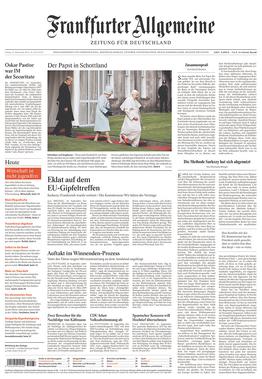
The Frankfurter Allgemeine Zeitung is a German newspaper founded in 1949. It is published daily in Frankfurt. Its Sunday edition is the Frankfurter Allgemeine Sonntagszeitung.
Gregory J. Markopoulos was a Greek-American experimental filmmaker.
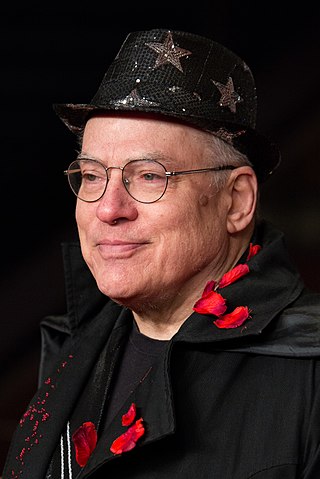
Holger Bernhard Bruno Mischwitzky, known professionally as Rosa von Praunheim, is a German film director, author, painter and one of the most famous gay rights activists in the German-speaking world. In over 50 years, von Praunheim has made more than 150 films. His works influenced the development of LGBTQ+ rights movements worldwide.
Peter Bieri, better known by his pseudonym, Pascal Mercier, was a Swiss writer and philosopher.
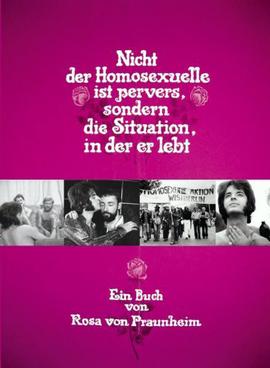
It Is Not the Homosexual Who Is Perverse, But the Society in Which He Lives is a 1971 German avant-garde film directed by Rosa von Praunheim.

Neurosia: 50 Years of Perversity is a 1995 German film directed by Rosa von Praunheim.
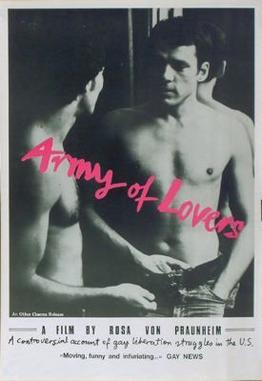
Army of Lovers or Revolt of the Perverts is a 1979 German documentary film directed by Rosa von Praunheim.
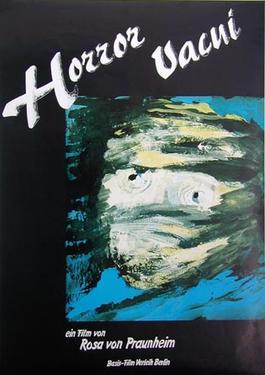
Horror Vacui (German: Horror Vacui - Die Angst vor der Leere) is a 1984 German avant-garde film directed by Rosa von Praunheim.
The Theodor Wolff Prize is a German journalism prize. It has been awarded annually since 1962 in five categories, equal prizes of €6,000, by the Federal Association of German Newspaper Publishers. In addition, at irregular intervals, journalists are awarded the Theodor Wolff Prize for their life's work.

Rent Boys is a 2011 German documentary film directed, written and produced by Rosa von Praunheim. The film was shown at the Berlin International Film Festival and the Queer Lisboa International Film Festival in 2011, for example.
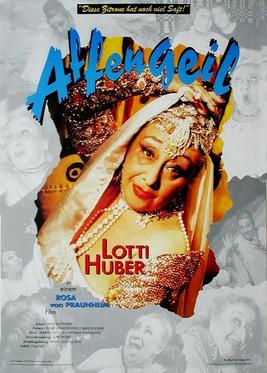
Affengeil is a 1990 German semi-documentarian film by Rosa von Praunheim. The film was shown at the 1991 Toronto International Film Festival and 1992 at the Frameline Film Festival in San Francisco, among others.

Red Love is a 1982 German film directed by Rosa von Praunheim.

The Kunstmesse München is the oldest art and antiques fair in Germany. Held annually in the autumn with a run-time of ten days, it is a fair for the general public, attended by leading national and international exhibitors. For some time now its venue is the historic Postpalast in Munich, on Wredestraße near the Hackerbrücke. The offer ranges from Protohistory and Ancient History via the arts and crafts of the Middle Ages and the Renaissance through to art and design of Modernism until approximately 1970, with occasional exceptions. The fair is organised by Expo Management Kiel, its conceptual sponsor is, in continuation of the Deutscher Kunsthandelsverband, the newly founded Kunsthändlerverband Deutschland.
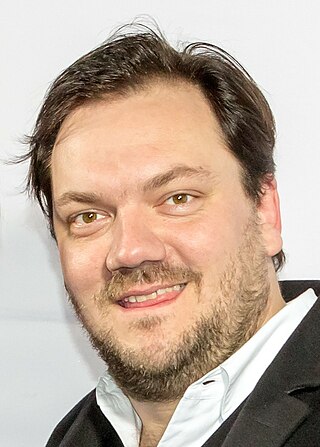
Carsten Johannes Marcus Hübner is a German actor. He appeared in more than eighty films since 2003, including Magical Mystery or: The Return of Karl Schmidt and The Good Neighbour. Also known on TV for Transporter, Polizeiruf 110, crime series Post Mortem in 2007/2008.
Herrliche Zeiten is a 2018 German comedy-drama film directed by Oskar Roehler, starring Katja Riemann and Oliver Masucci. It tells the story of an affluent couple looking for a new housekeeper. As a joke, they write in the ad that they are looking for "slaves", which has unexpected consequences.
Nicole Kortlüke is a German film editor.
Corinna Salander (1967) is a German physicist and engineer who has been serving as director of the German Centre for Rail Traffic Research (DZSF) since 2020.
Christopher Roth is a German film director, artist and TV producer.

We Are Next of Kin is a 2022 German coming-of-age psychological drama film directed by Hans-Christian Schmid, based on the autobiographical book of the same name by Johann Scheerer. The story is about the kidnapping of Jan Philipp Reemtsma, but from the point of view of his son Johann, then 13 years old. Following its premiere at the 2022 Hamburg Film Festival, it was released in German cinemas on 3 November 2022.

Karola Gramann is a German film scholar and film curator. From 2006 to 2019 she was artistic director of the Kinothek Asta Nielsen e.V.
This page is based on this
Wikipedia article Text is available under the
CC BY-SA 4.0 license; additional terms may apply.
Images, videos and audio are available under their respective licenses.












